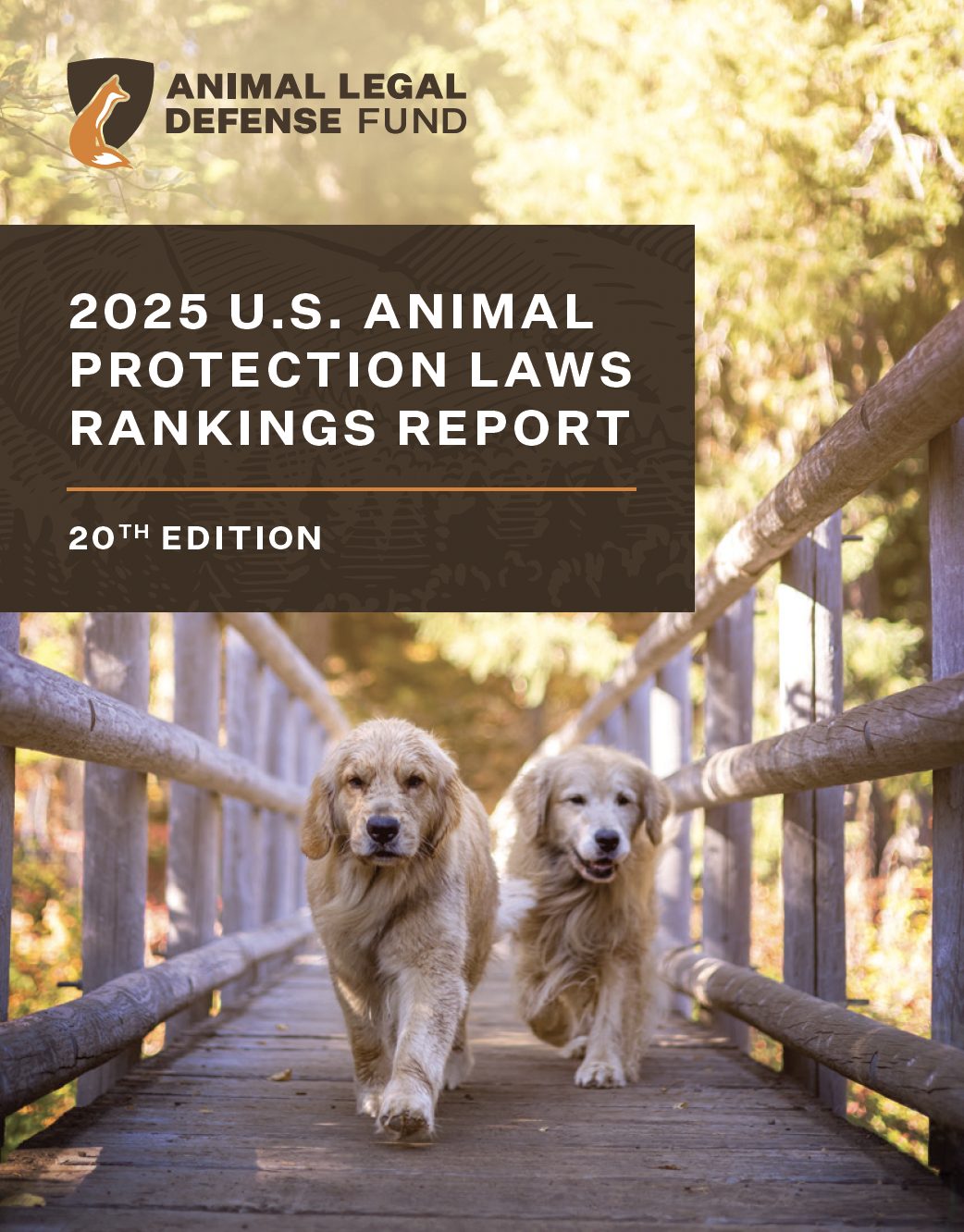
“Bond or Forfeit” Laws
2025 U.S. Animal Protection Laws State Rankings
Bond-or-forfeit laws
A continuing trend in 2025 was the enactment of “bond-or-forfeit” laws. When an animal is seized pursuant to an animal cruelty investigation, the owner still retains their property interest in the animal despite losing physical custody. Owners can always voluntarily surrender that property interest, but if they choose not to, the animal is put in a sort of legal limbo. The animal cannot — and should not — be returned to the owner until the animal cruelty charges are fully adjudicated or dismissed, but they also cannot be adopted out into a new home because the defendant still technically owns them.
Criminal cruelty cases can drag on for months or even years, meanwhile, the animal is languishing in a shelter. Keeping animals for long periods of time in a shelter — even the best, most well-resourced shelters — is harmful for animals’ psychological well-being and can cause them to be re-traumatized. This can lead to behavioral problems, making animals even harder to adopt out when the criminal case eventually concludes.
Caring for seized animals is also a huge financial burden on cities and counties, or other organizations that house seized animals. In addition to the ordinary costs of providing food and shelter to animals in their care, shelters also have to provide veterinary care. Depending on the extent of the abuse or neglect, the animal may require significant rehabilitative care. Animal hoarding cases involving dozens or hundreds of animals, or cases involving large animals like horses or cows, can exacerbate these costs even further.
The most common legislative solution to these issues is bond-or-forfeit laws. Forty states plus the District of Columbia and Guam all have some form of bond-or-forfeit laws. These laws require that the defendant either post a bond with the court covering the costs of caring for the seized animals, or forfeit the animals, allowing them to be adopted out into new homes. The bonds typically cover the costs of caring for a seized animal for 30 days and are renewed when they expire.
The legal proceedings around bond-or-forfeit laws are complex and can be difficult for all parties to navigate. They are civil hearings, running in conjunction with a criminal prosecution. In order to protect the defendant’s civil rights and property interests, they must be afforded due process. It is therefore vital that bond-or-forfeit statutes be written clearly, so that all parties are well aware of the legal processes in place and have the opportunity to be heard.
In 2025, Arizona strengthened its existing bond-or-forfeit law. Previously, the amount of bond for a single cat or dog was limited to just $25, which often does not come close to covering the animal’s necessary costs of care. Arizona also increased the maximum amount of monthly bonds for seized cats and dogs to $500 per animal.

You Can Protect Animals
Since 1979, the Animal Legal Defense Fund has led the charge to win animals the legal protection they so desperately need—and deserve. Your generous gift will assure that we can continue to take on cases that advance the interests of animals.

